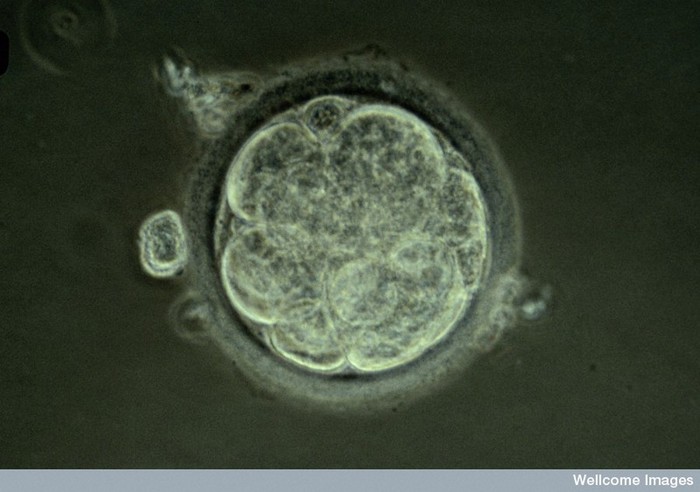- Click to share on Facebook (Opens in a new window)
- Click to share on Twitter (Opens in a new window)
- Click here to share on LinkedIn (Opens in a new window)
- Click to email a friend (Opens in a new window)
Eating healthy so as not to affect sperm 0:39
(CNN) - Sperm donations from men who have already died are "ethically permissible," said doctors seeking to address the shortage of living donors in Britain.
A study, published in the Journal of Medical Ethics on Monday, proposes that men can "register the desire to donate their sperm after death for use" by other people.
- READ: This is one of the largest sperm banks in the world
Such a procedure would be similar to organ donation, the research authors, Dr. Nathan Hodson of the University of Leicester and Dr. Joshua Parker of the Wythenshawe Hospital in Manchester, wrote.
“If it is morally acceptable for people to donate their tissues to alleviate the suffering of others through 'life-enhancing transplants' in cases of illness, we see no reason why this cannot be extended to other forms of suffering such as infertility, which may or may not be considered a disease, ”says the study.
The mechanics of the donation, say the authors, is completely viable through electroejaculation or surgical methods.
The authors claim that sperm can be protected with cryopreservation after harvesting and thawed when chosen for reproduction.
The scientists noted that sperm collection after death has been possible for many years and there is evidence that it can be used in reproduction. Sperm recovered even after 48 hours of death can lead to viable pregnancies and healthy children, they added.
The shortage of sperm donors in Britain
This process would face the current shortage of sperm donors in Britain, the authors argue, which has led the country to import commercially donated sperm to meet the demand of couples struggling to conceive.
It is estimated that 4,000 samples were imported from the US in 2017. and another 3,000 from Denmark, according to the Department of Health and Social Care of Great Britain.
The researchers argued that sperm donated in this way could also offer comfort to the donor's family.
"Bereaved families commonly comfort themselves by knowing that the organs of their loved ones were used to improve the lives of others," the research said.
"Given the value that society gives to paternity and parenting, there are reasons to believe that donor families would react similarly with respect to gamete donation."
But, according to the Human Fertilization and Embryology Authority (HFEA), donors should be evaluated according to legal requirements and guidance. HFEA is Britain's agency that regulates fertility clinics.
This includes medical tests that can only be done while the donor is alive. At present, HFEA says, donors must be fully informed about the process and its implications, have received advice and given consent for the procedure.
“None of these requirements could be met if the donation is made after death. Essentially, it means that extracting sperm from a donor after death is currently illegal, ”an HFEA spokeswoman said in a statement to CNN.
Other experts questioned the impact that a deceased sperm donor would have on future descendants.
Sarah Norcross, director of the Progress Educational Trust fertility charity, told CNN that in Britain, people can discover their donor's identity at age 18.
“If we allow sperm donation after death, that opportunity would close for people conceived by these donors. What do people conceive of sperm donation think and what would be the impact of never being able to meet their donors? ”Narcross said.
Dr. Allan Pacey, a professor of andrology at the University of Sheffield, told CNN that he disagreed with the study's recommendation.
“Given the distance we have traveled in terms of recruiting donors who are willing to be identified by people conceived by donors, it feels like a step back then to have donors who are dead and, therefore, will never have the opportunity to meet them ", said.
Pacey said he felt "very uncomfortable with the idea," and advocated using more resources to recruit younger, healthier and more willing donors "who have a good chance of being alive when the conceived person begins to be curious about them."
Sperm Men














